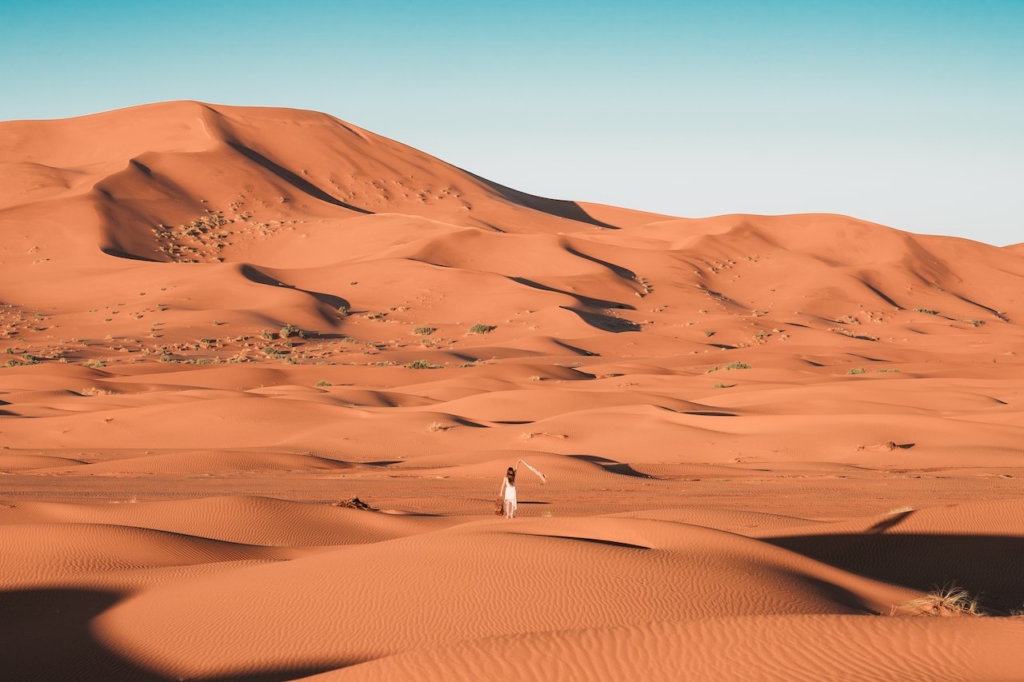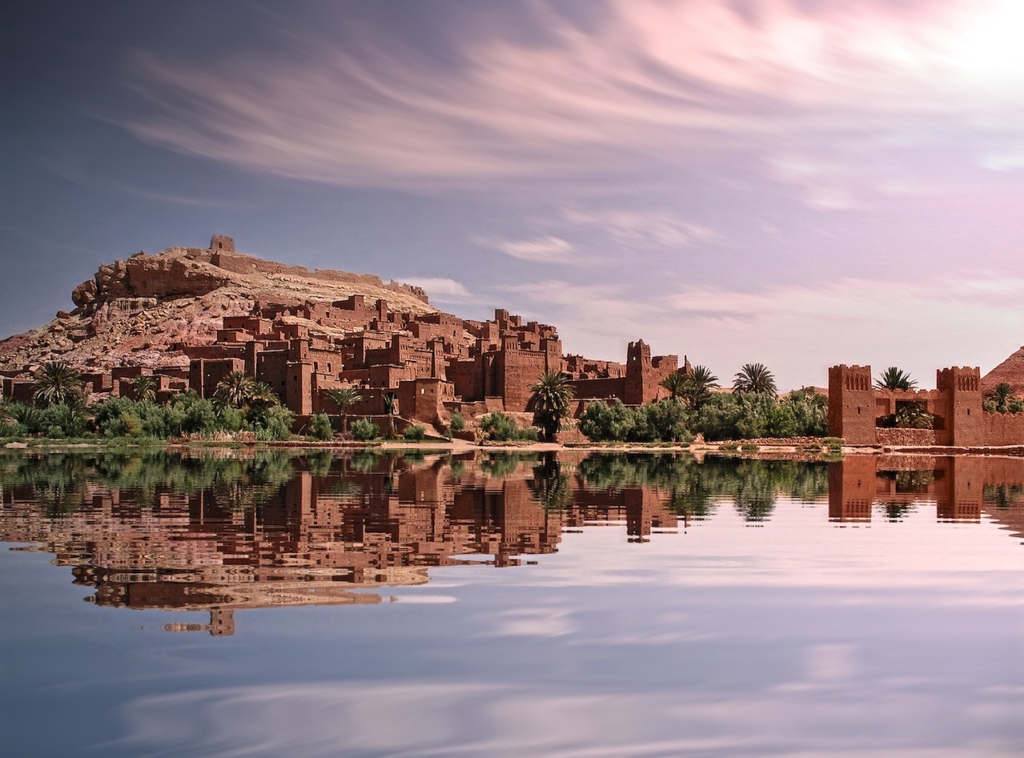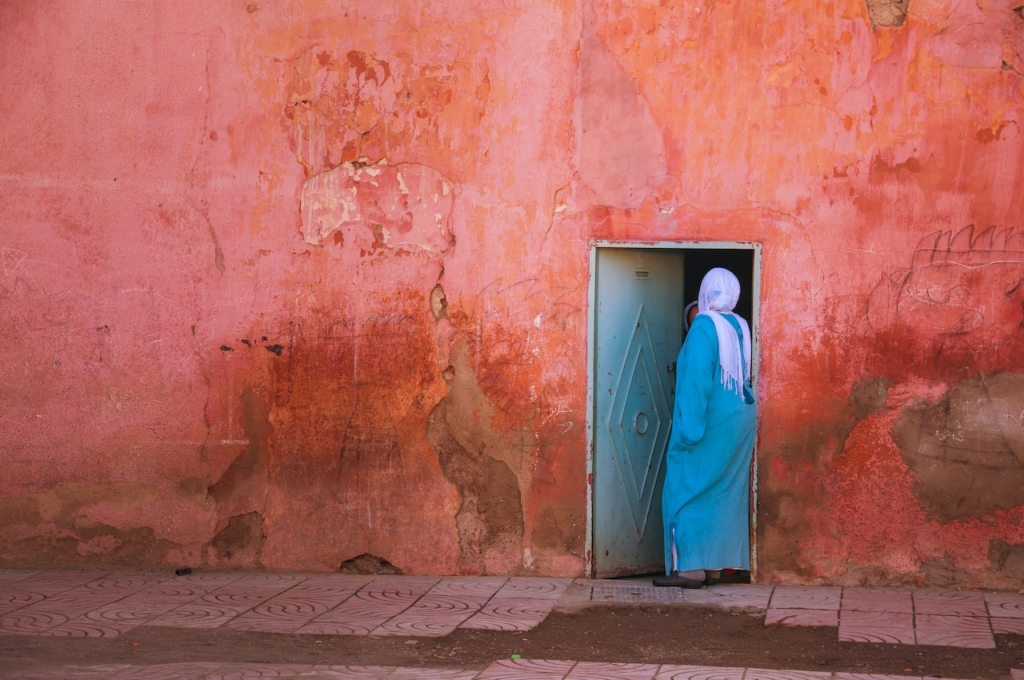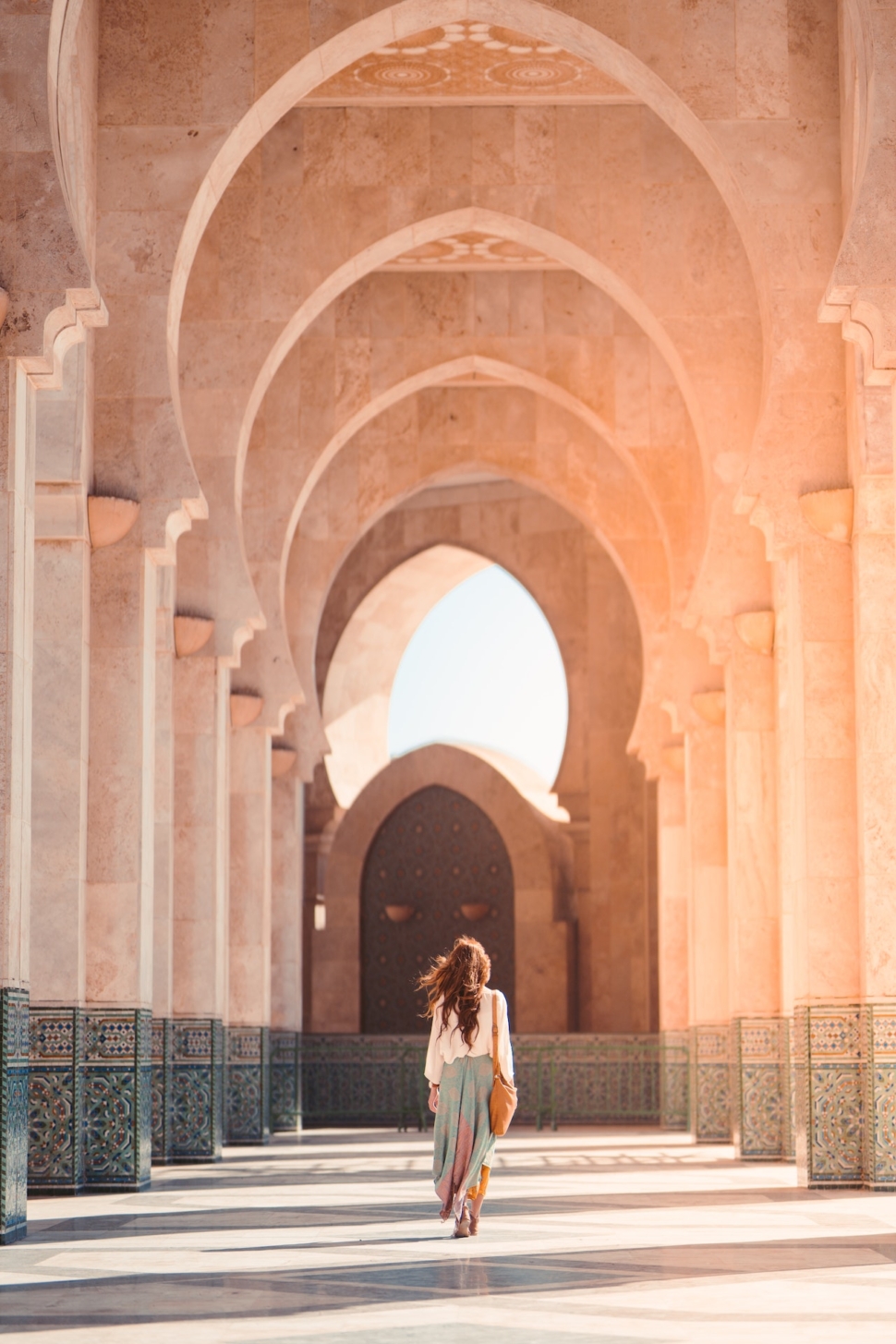Morocco, a North African country known for its vibrant culture, diverse landscapes, and rich history, is a popular destination for travelers from around the world. As with any country, safety and security should be a top priority for visitors, particularly for solo female travelers. The question of whether Morocco is safe for women is a complex one that is contingent upon several factors, including cultural understanding, personal behavior, and the nature of individual interactions.
Understanding Moroccan culture is essential for women to feel comfortable and stay safe while traveling in the country. Moroccan society is predominantly Muslim, and cultural norms and expectations around gender and dress may differ from those in Western countries. This can present challenges for female travelers who may be unaccustomed to navigating these cultural differences. However, this does not mean that Morocco is inherently unsafe; it simply requires an understanding of customs and respect for local sensitivities.
Certain safety concerns are specific to solo female travelers in Morocco, such as the potential for harassment, pickpocketing, or scams in crowded areas. Being aware of these risks and taking appropriate precautions can greatly reduce the likelihood of encountering any issues while enjoying the diverse experiences Morocco has to offer. If you’re wondering is Morocco safe for women, keep reading this post and it will help you make an informed decision.
Key Takeaways
- Understand and respect Moroccan culture for a comfortable travel experience
- Be aware of safety concerns specific to solo female travelers
- Take necessary precautions to minimize risks and fully enjoy Morocco’s attractions

Understanding Moroccan Culture
Religion and Society
Morocco is predominantly a Muslim country, with Islam having a significant influence on the country’s culture, customs, and way of life. It is important for women visiting Morocco to be sensitive to and understand the cultural norms and practices in order to ensure a safe and enjoyable experience. Traditional Moroccan society is conservative, with gender roles and family values deeply ingrained. However, in recent years, these customs have evolved with the progressive shift in Moroccan society.
Language and Communication
In Morocco, the official languages are Arabic and Amazigh. French is also widely spoken, particularly in urban areas. However, it is not uncommon for people to have some knowledge of English, especially in tourist-heavy locations.
Moroccan communication style tends to be indirect and emphasize politeness, which may be different from what some Western women might be used to. An understanding of these cultural nuances can make interactions with Moroccans more positive and respectful.
Fashion and Dress Code
One of the most notable aspects of Moroccan culture is its fashion. The traditional attire for women includes long, flowing robes known as djellabas, and headscarves called hijabs, which are worn to display modesty. When visiting Morocco, it is advisable for women to dress modestly, especially in rural areas and religious sites. Avoid wearing revealing or tight clothing, and instead opt for loose-fitting garments that cover shoulders, arms, and legs. Adhering to the local dress code will not only show respect for the host culture but will also significantly reduce the chances of attracting unwanted attention or harassment.
Safety Concerns for Solo Female Travelers
Dealing With Unwanted Attention
Solo female travelers may experience unwanted attention while in Morocco. It is essential to be aware of your surroundings and adopt a confident, assertive demeanor to discourage any unwelcome advances. In public places, it may be helpful to dress modestly and avoid revealing clothing, as local cultural norms tend to favor conservative attire. Recognize that persistent vendors or strangers who approach you may be motivated by financial gain or simply curiosity about foreign visitors. It’s important to be polite yet firm in your responses, and if necessary, seek help from the local authorities or fellow travelers.
Keeping Personal Belongings Safe
When exploring Morocco, it’s crucial to prioritize personal safety and keep your belongings secure. Consider using a money belt or hidden pouch to store valuables such as your passport, cash, and travel documents. Avoid displaying expensive items, like cameras and smartphones, in crowded locations that may attract potential thieves. While staying in accommodations, consider using a locker or safe provided by the establishment to store your belongings securely. Additionally, it’s wise to keep a copy of essential travel documents, both digital and physical, in case the originals are lost or stolen.
Sexual Harassment Concerns
Sexual harassment is a concern for solo female travelers in Morocco. To reduce the likelihood of encountering such situations, it’s best to be cautious and maintain a low profile. Avoid traveling alone after dark, particularly in unfamiliar areas, and opt for registered taxis or rideshare services when possible. If you feel uncomfortable or threatened, trust your instincts, and seek help from local authorities or bystander intervention. It may also be beneficial to learn some phrases in the local language, which can communicate your discomfort and deter potential harassers. Finally, connecting with fellow travelers or joining group tours can provide additional safety and support while experiencing the unique culture and beauty of Morocco. One of the best ways to stay safe in Morocco as a female traveler is to avoid traveling alone.

Practical Travel Tips
Packing Essentials
When preparing for a trip to Morocco, it is essential to pack appropriately to ensure safety and comfort. Women should bring light, modest clothing that covers their shoulders and knees like long-sleeve tops and loose-fitting pants or skirts. Additionally, a lightweight scarf can be useful for covering the head when entering religious sites or for sun protection.
In terms of personal safety items, a portable door lock and a theft-proof bag can add an extra layer of security. Remember to bring a small first aid kit, any necessary medications, and a photocopy of your passport just in case.
Navigating Moroccan Cities
Staying safe while navigating Moroccan cities requires a bit of preparation and awareness. When planning your itinerary, use reliable sources such as travel guides and Google Maps to get accurate information about the area. Be cautious of accepting unsolicited help from strangers as they may expect a tip or attempt a scam.
Get acquainted with the layout of the city and major landmarks so that you can confidently navigate the streets. It is ideal to travel in small groups, especially during the night. Try to avoid isolated or poorly lit areas and always follow your instincts when it comes to feeling safe.
Using Public Transportation
Moroccan public transportation is relatively safe; however, it is essential to keep a few tips in mind. When using buses or taxis, be aware of your surroundings and keep a close eye on your belongings. In shared taxis (called “grand taxis”), be prepared to negotiate fares beforehand to avoid disagreements upon arriving at your destination. Meanwhile, when traveling by train, opt for the first-class compartments for a more comfortable and secure experience.
While using public transport, it’s helpful to know basic phrases in the local language, such as asking for directions or inquiring about fares. This not only demonstrates respect for the local culture but also helps you to better navigate the transportation system.
Exploring Moroccan Cities
Marrakesh
Marrakesh, also spelled as Marrakech, is a thriving city with a rich history and a vibrant cultural scene. The city is known for its bustling markets, impressive palaces, and picturesque gardens. Women traveling to Marrakesh can have a safe and enjoyable experience by taking some basic precautions.
The old Medina in Marrakesh is a popular tourist destination, featuring colorful markets, buzzing squares, and narrow alleys. For women, it is important to dress modestly while exploring the Medina to avoid any unwanted attention. Wearing loose and long-sleeved clothing is recommended.
Additionally, it’s a good idea for women to:
- Stay aware of surroundings in both crowded and quiet areas.
- Avoid walking alone at night in unfamiliar places.
- Keep belongings secure and avoid displaying expensive items.
Essaouira
Essaouira is a charming coastal city famous for its well-preserved Medina and beautiful beaches. The city offers a more relaxed atmosphere than Marrakesh, but it’s still vital for women travelers to take some precautions.
In Essaouira’s old Medina, women can explore the narrow streets filled with artisan shops and historical sites. Modest clothing is recommended, as well as maintaining a sense of personal space and security. Being courteous yet confident when navigating through the streets can help women enjoy their visit without feeling overwhelmed.
While visiting Essaouira, women should also:
- Stay within well-trafficked areas, particularly after dark
- Respect local customs and ways of life
- Choose accommodation that maintains high standards of safety and security
By following these guidelines, women can experience the magic and allure of Morocco’s cities while also staying safe and comfortable.

Embracing Local Experiences
Morocco, a vibrant North African country, offers a rich cultural experience for travelers. Safely exploring the country is possible for women, provided they respect local customs and embrace the experiences Morocco has to offer.
Visiting Local Souks
Souks, or local markets, are a must-visit while in Morocco. The bustling bazaars are filled with stalls selling everything from spices to carpets. Women travelers can confidently explore the souks while respecting the conservative dress code. To better navigate through the maze-like markets, it is advisable to travel with a local guide or go with a group. By engaging with locals, women will gain a deeper appreciation of Moroccan customs and learn to recognize genuine products and bargaining practices.
Staying in Riads
Riads are traditional Moroccan homes converted into guesthouses. Staying in a riad allows women travelers to feel more secure, as they provide more privacy than hotels and the opportunity to interact with locals on a smaller scale. Riads typically have an inner courtyard, beautiful architecture, and attentive staff. Women can experience genuine Moroccan hospitality in these accommodations and even participate in activities such as cooking classes.
Taking a Camel Trek
A camel trek is an unforgettable adventure for those visiting Morocco. Women can safely partake in camel treks by traveling with reputable tour operators to explore the breathtaking landscapes of the Sahara. By traveling in guided groups, women will not only enjoy the scenic wonders of the desert but also learn about the local Bedouin culture. The camel trek usually includes camping under the stars, sharing traditional meals, and being entertained by local musicians.
Adhering to local customs and respecting the culture, women travelers can thoroughly enjoy their Moroccan adventure by embracing the aforementioned local experiences.
Travel Insurance and Support
Travel insurance is a crucial aspect to consider while planning a trip to Morocco, especially for women. A comprehensive travel insurance policy can provide coverage for medical emergencies, accidents, theft, and other unforeseen events. Women travelers are advised to thoroughly research and choose a policy that meets their specific needs, taking into consideration factors such as the duration of their stay, the activities they plan to participate in, and any pre-existing medical conditions.
While Morocco is considered generally safe for tourists, it’s imperative to stay vigilant and take necessary precautions for personal safety. In case of emergencies, the local police can be contacted by dialing 190 or 112. The Moroccan police force is typically responsive and helpful in assisting tourists.
To stay safe during your trip, it’s recommended to follow some important guidelines:
- Avoid walking alone in poorly-lit or isolated areas, especially at night.
- Dress modestly and respect the local culture to prevent unwanted attention.
- Keep your belongings secure and avoid flashing expensive items, such as jewelry or high-end electronics.
- Use a reputable taxi service or arrange for transportation through your accommodations.
- Stay alert and be aware of your surroundings. If you feel unsafe, trust your instincts and remove yourself from the situation.
In addition to the above safety measures, it’s helpful to familiarize yourself with the local customs and etiquette. Make sure to exchange contact information with friends or family back home and provide them with a copy of your itinerary.
In conclusion, Morocco can be a safe and enriching destination for women travelers when necessary precautions are taken. Ensuring that you have adequate travel insurance and support can go a long way in making your trip enjoyable and stress-free.
Conclusion
Morocco, as a destination, has much to offer for women travelers. Its rich culture, history, and diverse landscapes make it an attractive option for an adventure. Generally, Morocco is considered a safe destination, with most tourists having positive experiences.
However, women travelers should exercise caution and follow common-sense guidelines to ensure a safe and enjoyable experience. It’s important to respect the cultural norms and dress modestly to avoid unwanted attention. Traveling in groups and staying in reputable accommodations are additional steps that can be taken to ensure safety.
In conclusion, Morocco is safe for women travelers who take necessary precautions and remain vigilant of their surroundings. By staying informed and respecting local customs, women can confidently explore this beautiful country while feeling secure and welcomed.

Frequently Asked Questions
How are women treated in Morocco?
In Morocco, women are generally treated with respect, especially in urban areas. However, traditional gender roles and expectations are still prevalent, especially in rural areas. It’s worth noting that Moroccan women are often regarded with a certain level of curiosity by locals, so be prepared for occasional stares.
What precautions should female travelers take in Morocco to stay safe?
Female travelers in Morocco should take the same basic safety precautions as they would in any other unfamiliar destination. This includes avoiding isolated or poorly lit areas, especially at night, and being cautious when using public transportation. It’s also essential to be aware of potential scams and to be vigilant about personal belongings.
Can women wear Western clothing in Morocco?
Women can wear Western clothing in Morocco, but it’s essential to dress modestly and conservatively. This means avoiding revealing clothes, such as low-cut tops, short skirts, or shorts. Instead, opt for loose-fitting clothing that covers the shoulders, knees, and chest. Wearing a headscarf is not required but can help to deflect unwanted attention.
Is it safe for solo female travelers in Morocco?
Morocco is generally safe for solo female travelers, but it’s essential to remain vigilant and cautious. Be aware of your surroundings, trust your instincts, and use common sense. If you feel unsafe or uncomfortable, remove yourself from the situation as quickly and discreetly as possible.
What cultural norms should female visitors be aware of?
In Morocco, the cultural norms for women vary according to their location, religion, and socioeconomic status. However, as a visitor, it’s essential to be respectful of local customs, such as dressing modestly and behaving conservatively. Avoid excessive displays of affection in public and be mindful of your interactions with Moroccan men.
Are there specific areas to avoid for women in Morocco?
There are no specific areas in Morocco that women should avoid, but it’s essential to exercise caution in crowded or isolated places, particularly at night. Stick to well-traveled tourist areas and try to blend in with the local population. Avoid drawing attention to yourself by wearing flashy jewelry, carrying expensive electronics, or displaying a wealth of cash.
